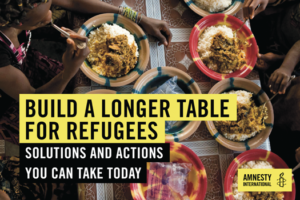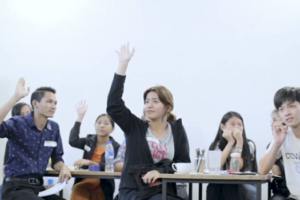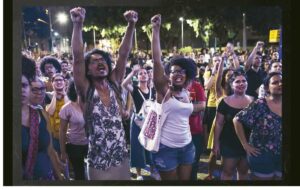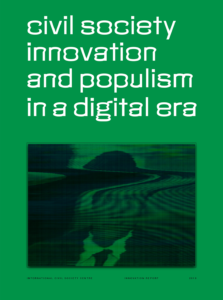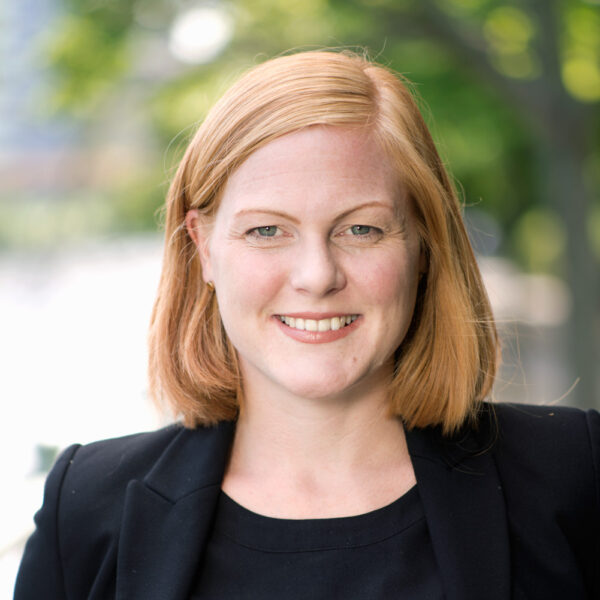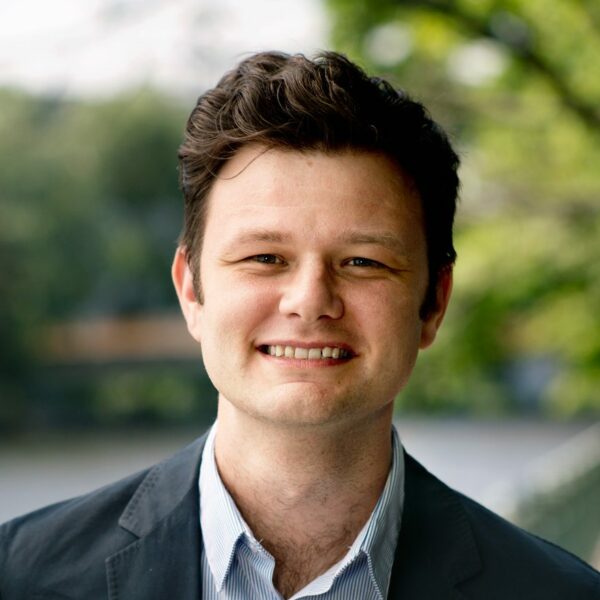Throughout 2019, the Centre’s Scanning the Horizon futures community has explored the implications of China’s growing global influence on the future work of internationally-operating civil society organisations. Following a well-attended cross-sector meeting in Hong Kong in June, we have published a new Sector Guide of practical entry points for senior civil society leaders to summarise the key themes and implications for our sector. It provides strategic guidance for organisations to think through their current strategies and capacities, and further develop future engagement and adaptation approaches to be better prepared for this major trend.
To accompany the launch of this Guide, we invited this guest blog from Amnesty International’s China Strategy Manager, Heather Hutchings.
——————-
The rise of global China is impacting human rights.
In the increasing number of countries in which China is investing and operating, much-needed infrastructure and employment can help to fulfil the human rights of the people living there. But all too often their rights are abused as China fails time and again to consult with and address the concerns of communities affected by its overseas ‘development’ projects.
Furthermore, an increasingly assertive China has worrying implications for the human rights system as a whole. We see China operating from within the UN Human Rights Council to shrink the space available for the UN and civil society to hold states accountable for their human rights records, as well as making efforts to reframe human rights as a ‘cause’, as opposed to a state’s legal obligation to its people.
But China’s ascension to the world stage is a paradigm shift that is both driving and reflecting a new world order and balance of power. As this excellent new International Civil Society Centre guide notes, this is ‘widely regarded as one of the top global trends influencing the trajectory of other major megatrends for decades ahead’. This means, in other words, we can neither ignore nor resist global China.
Amnesty International vs Global China
I’m pleased – and relieved! – to see that Amnesty International’s global China strategy responds to many of the recommendations in this guide, while some others set us challenges to meet and aspirations to fulfil.
Amnesty views global China as a complex problem, or ‘VUCA’ for those who enjoy military acronyms!:
- Volatile in its pace of change and sheer scale, which thwarts our attempts to know and understand. Any information we have at any one time is incomplete and quickly obsolete.
- Unpredictable – as Yuen Yuen Ang summed up, China’s flagship Belt and Road Initiative bears “the hallmark of communist-style mass campaigns [in that] everyone pitches in with frenzied enthusiasm and little coordination…lead[ing] to low-quality and mismatched projects, duplication, conflicts of interest and corruption.”
- Complex, with innumerable and entangled causes and effects. China is both driving and benefitting from the shift in global power. It is changing and shaped by the global economy and feeds both off and into rising authoritarianism.
- Ambiguous, in the absence of transparent information about China’s foreign policy ambitions, plans and individual projects assumptions. Under such conditions, rumour and contradiction run rife.
China’s impact on human rights abroad is not a simple problem that can be solved. So, Amnesty’s aim is not to bring an end to China’s global reach in a concise campaign timeframe. Our aim is to build capacity across Amnesty’s movement of more than seven million members and supporters to influence global China, now and over time, and adapt as global China itself evolves.
Amnesty’s 16 Regional Offices and 68 national entities position us well to respond to China in and from countries where it is active, and to do so in partnership with local civil society (recommendation 3). As Strategy Manager, I draw together the relevant China expertise from our East Asia office, the local knowledge and connections of our staff in or from countries in which China is active, and Amnesty’s thematic specialists (recommendation 6). Through this network, we add value to work already identified as important by our colleagues across the movement – easily done, given the many ways in which China is showing up in Amnesty’s work around the world (recommendation 1).
Complementing this action-oriented network is a web of horizon scanners who regularly share their views of China from locations as far afield as Buenos Aires, Brussels or Bangkok (recommendations 7 and11). Their broad, light-touch insights about China in the world help deepen our analysis of China’s foreign policy and practice and better equip us to anticipate developments, spot trends and see entry points for our human rights work.
We recognise that we don’t have ready-made solutions to apply to the complex challenges arising from China’s presence abroad. We know we can only influence change together with others by forging partnerships with civil society to engage China in their countries and communities, to negotiate their interests and protect their rights (recommendation 12). And we also need to engage Chinese audiences, inside China and the diaspora of Chinese living overseas, as change agents and in solidarity with human rights defenders in countries where China is active. This is critical if we want to target Chinese state actors and corporations that perpetrate human rights violations abroad, without isolating and vilifying all Chinese people.
Challenges and aspirations
Key to Amnesty’s approach in this ‘VUCA’ context is learning and adaptation, as we actively test our theory of influence and make adjustments to strategy and action.
Learning from our experience to date, we know that the critical approach to human rights in China coming from Amnesty’s base in the ‘Global North’ serves an important watchdog function, but is readily dismissed by Beijing as hypocritical and an attempt to ‘contain’ China. Hence, we have chosen to focus on south-south engagement – influencing China with and through civil society and governments of the ‘Global South’ – and moving beyond ‘naming and shaming’ by not (only) pointing to problems. This approach – which departs from Amnesty’s usual practice – is challenging us to frame advocacy messages (recommendation 14) that propose practical solutions and, where appropriate, encourage China’s leadership to respect, protect and fulfil human rights.
Amnesty also deliberately adopts an ‘outsider’ strategy (recommendations 4 and 11). The price of our freedom to criticise China – harshly when and where deserved – is that our channels for dialogue with Beijing are few, country access for Amnesty staff is extremely limited, and our website and social media channels are blocked inside China. Understandably, this does not always make us the partner of choice for ICSOs with in-country offices (recommendations 18, 19 and 20).
Even as Amnesty aims to establish an ‘insider’ position with some Chinese actors abroad on issues of mutual interest – and indeed we have already seen promising outcomes through exchanges with Chinese companies and industry bodies – recommendation 16 is, I hope, an aspiration of the not-too-distant future when ICSOs will bring together our complementary ‘insider’ and ‘outsider’ strategies for greatest impact.
For Amnesty and across the sector, we need not only to develop a specific, organisation-wide global China strategy now. But also to continue developing and evolving our organisational responses over time, so that we may continually adapt ourselves to better influence the impact China has on the landscape for human rights and development. And thanks to the Centre and our sector Scanning the Horizon community, we now have a guide to help us do just that.

